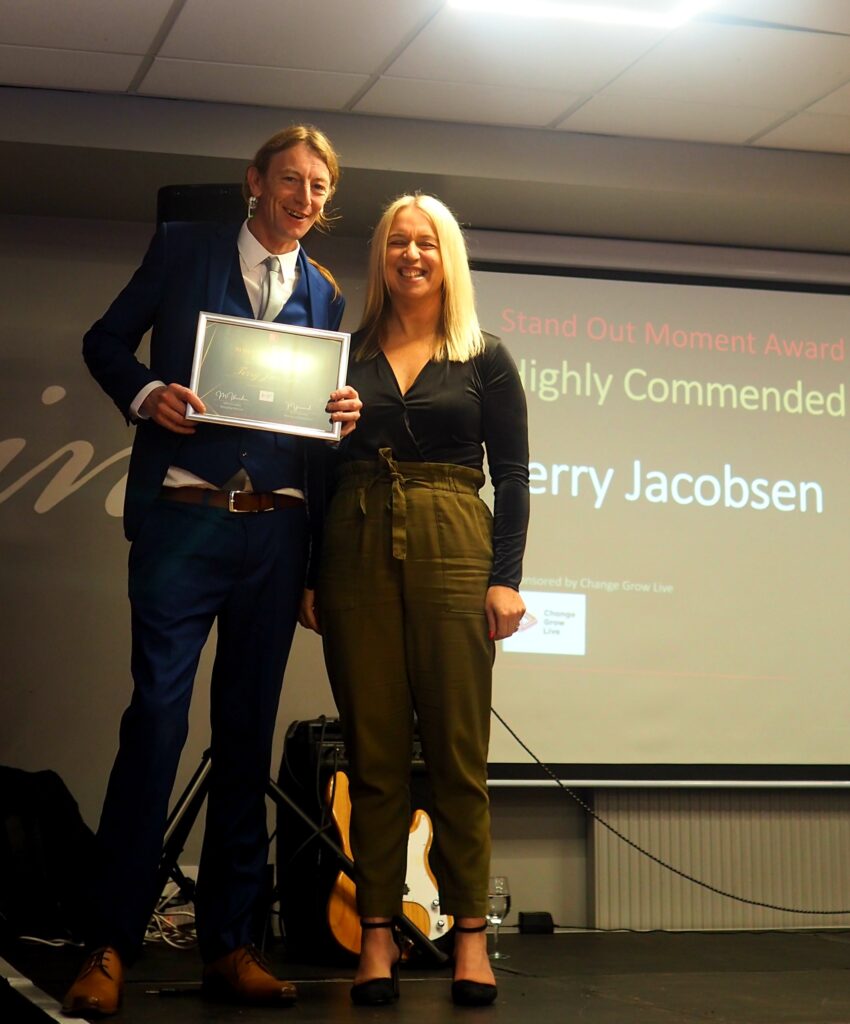By Jennie Chapman,
The psychiatrist Oliver Sacks called it “the profoundest non-chemical medication.” It evokes powerful memories and speaks when words fail. It’s the only stimulus that engages both sides of our brain simultaneously.
Music is a language, a unifier, and a healer. Its benefits for the health and happiness of individuals and communities are legion – and a pioneering new project at Red Rose Recovery is hoping to harness them…
Before joining the Changing Futures team in central Lancashire, Terry Jacobsen had a very different career.
As a professional music teacher, he saw the enormous value that music brought to people’s lives, especially those facing adversities.
Working on music projects with marginalised young people sparked an interest in social care and clinical psychology – the latter of which he is currently studying at the University of Central Lancashire – but his passion for music never waned. As he got to know the beneficiaries he works with, he realised that this passion was almost universally shared – and from this realisation sprang inspiration: a way to bring together his musical expertise and his dedication to helping others lead meaningful lives in recovery.
And so, the music therapy project was born.
“The benefits of music for mental health are massive, and well-documented,” Terry explained. “It ticks so many boxes: social inclusion and integration; learning something new; discipline; teamwork; having a structure to your day.
“And the great thing is that everyone can get involved in music – it doesn’t matter if you’re a complete beginner. It really is accessible to all.”
Research shows that music can be a powerful tool for recovery and wellbeing. It stimulates the production of dopamine and oxytocin, the body’s feelgood chemicals, while inhibiting that of the stress hormone cortisol. A 2011 study found that dopamine levels rose by up to 9% when people listened to music they enjoyed.
Learning an instrument, meanwhile, hones fine motor skills and increases cognitive function. “Studies have shown that learning a new instrument actually increases IQ by 10 points within six months,” said Terry.
Perhaps most pertinently for people in recovery, performing music boosts self-esteem and dissolves stigma. “When you’re on that stage, people see the performer, not the history,” Terry adds. “It brings people on the margins of a community back into the centre.”
The project has received funding from Red Rose Recovery’s Building Recovery in Communities (BRiC) fund, which has facilitated the purchase of instruments and equipment. “Without that funding, we couldn’t have even got started,” said Terry.
The programme has two elements. The first is a ‘brew and banter’ group where participants listen to, and discuss, pieces of music that have a special resonance for them. Terry hopes this will plant a seed that will encourage attendees to progress to the next stage – picking up an instrument. So far, nearly everyone who has attended the listening session has wanted to take their musical learning further.
Three bands have already been formed – and it is hoped that many more will follow, as well as choirs and other music-based initiatives.
Although the project is very much in its infancy, the benefits are already clear. One band performed – to great acclaim – at Red Rose Recovery’s recent 10-year anniversary celebration, after only one rehearsal. “One of the band members told me afterwards that, while he was performing, he didn’t feel like he was being defined by his lived experience,” Terry recalled. “He was simply seen as a musician.”
He added that engagement, social connection, and overall mental wellbeing had all improved among those involved in the initiative, with members forming “micro recovery communities” that support one another, peer-to-peer. The project and its outcomes are being carefully documented so that the benefits of music therapy can ultimately be shared across the health and social care sector.
Recovery takes many forms, but the parallels between recovery and the learning of a new skill – such as playing an instrument – are perhaps particularly striking.
“The key to recovery is incremental, sustainable change,” Terry said.
“You can take that approach to music, too. Learning a whole song might seem daunting at first – but you master one chord at a time and, before you know it, you’ve got a whole song.
“It’s much like recovery – we take it one day at a time.”








